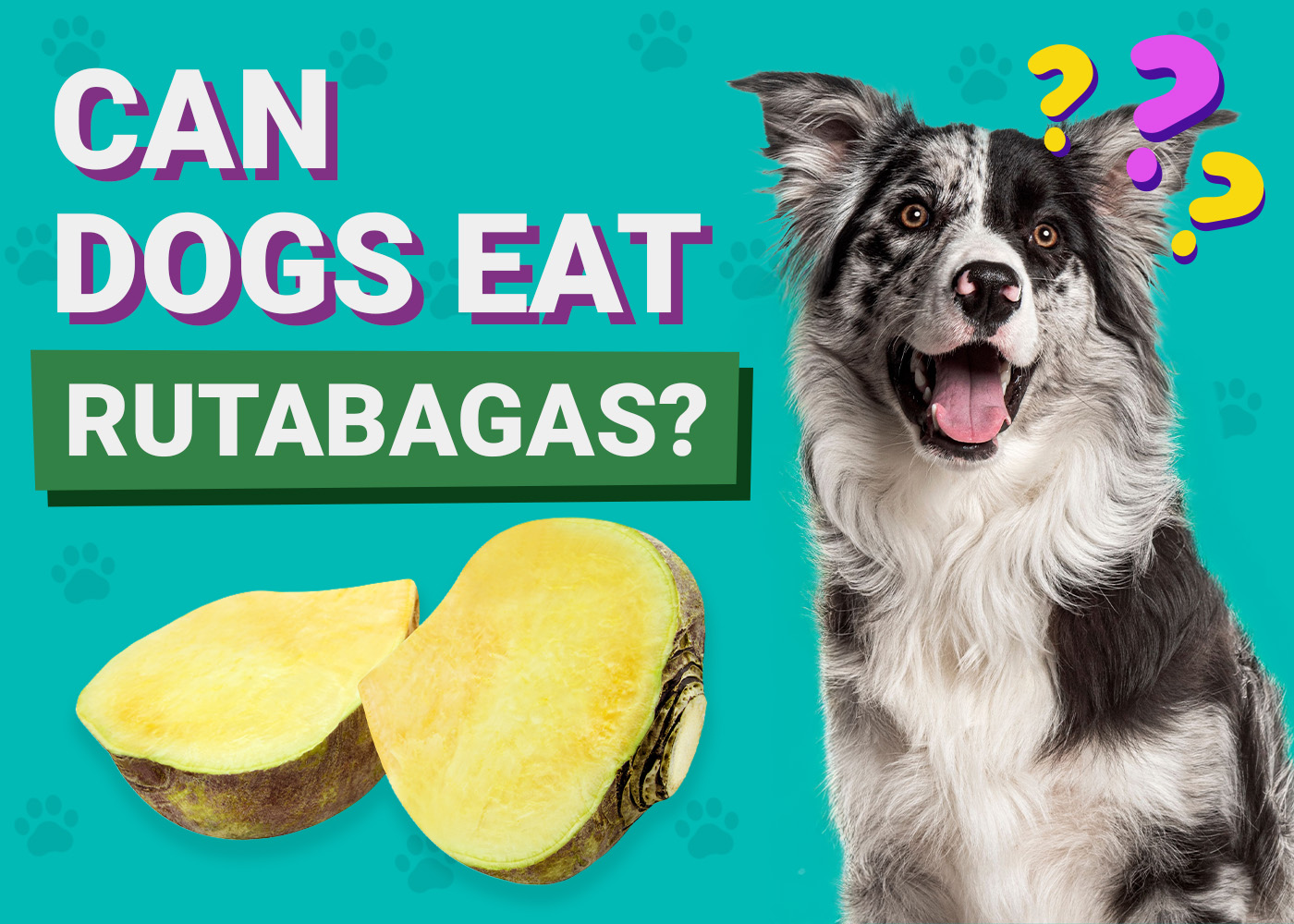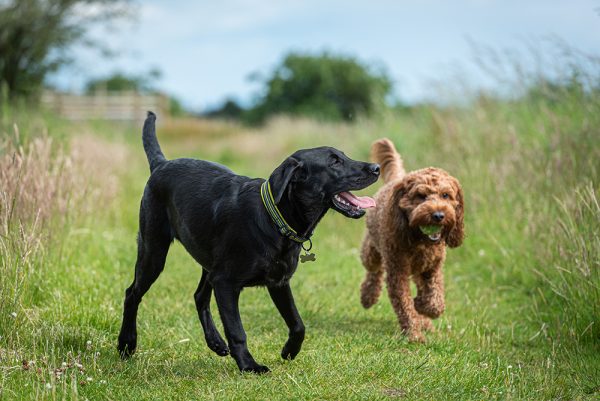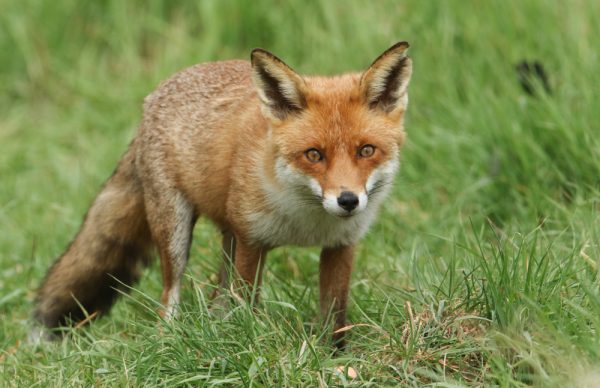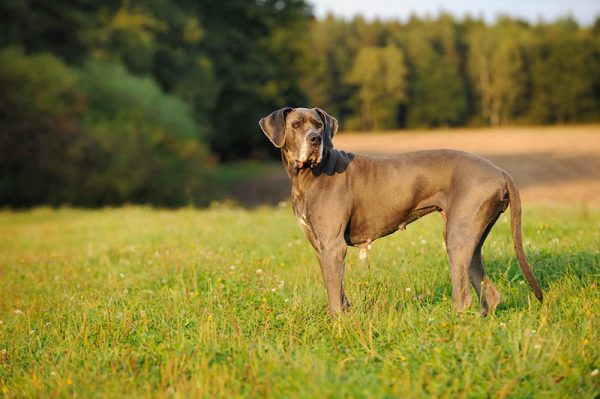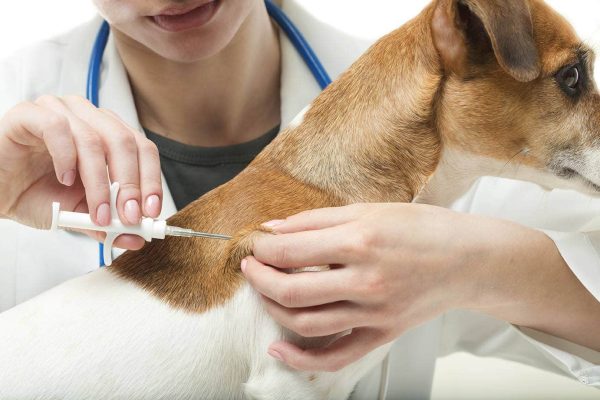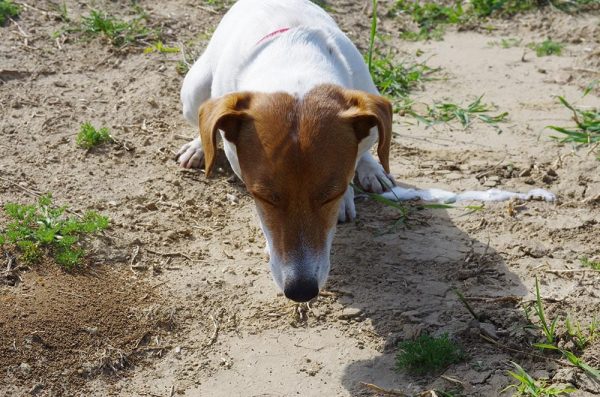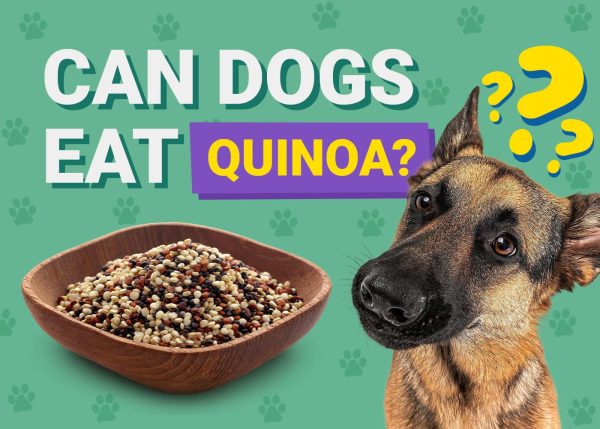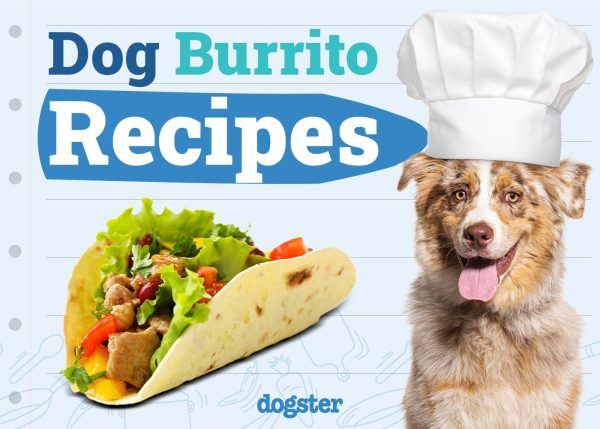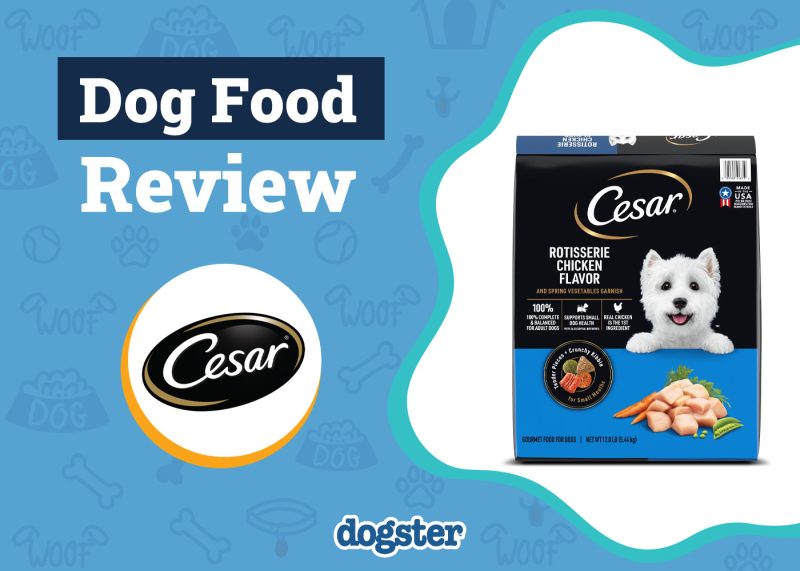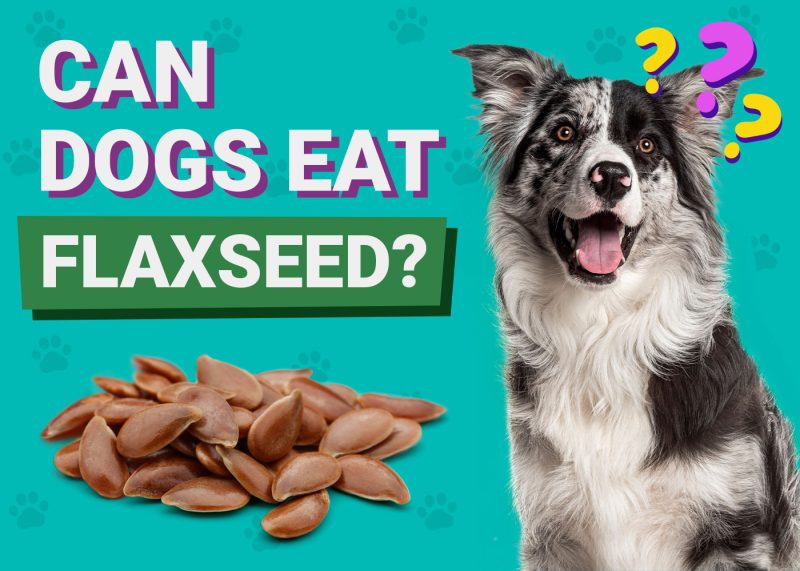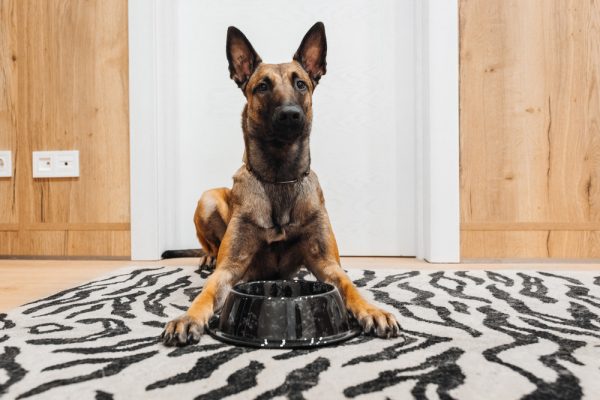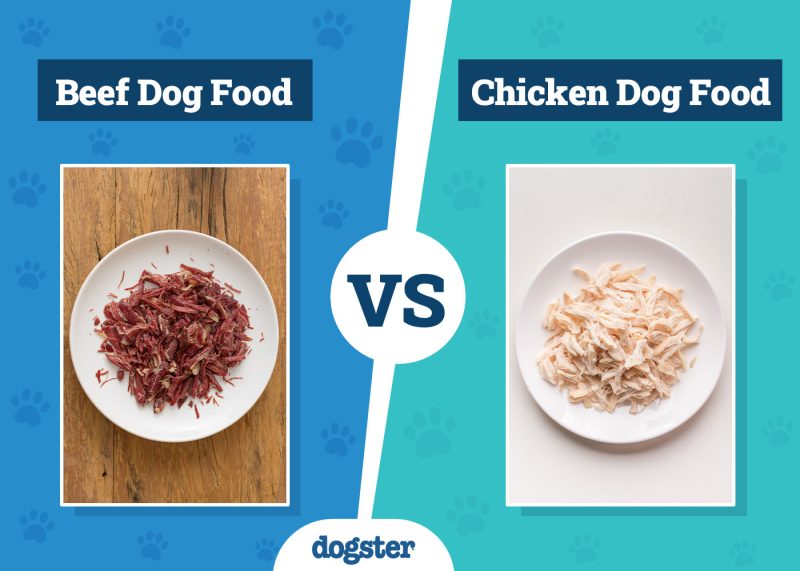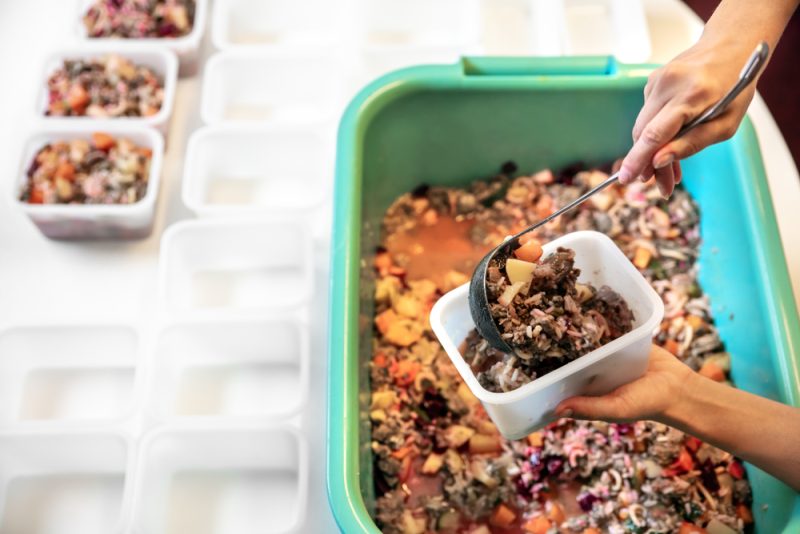In this article
As a pet parent, you want to ensure your dog is healthy and happy. It’s well known that dogs can eat a variety of vegetables like carrots, spinach, peas, and even fruits like apples and blueberries. And you’ll even find many of these vegetables in many premium, raw, or organic dog food products. But what about rutabagas?
Many of us humans enjoy these root vegetables, but it’s important to know if they’re safe for our canine companions before just tossing them into their bowls. So, can dogs eat rutabagas?
Rutabagas are a nutritious source of fiber, vitamins, and minerals, but like any other food, there are a few precautions to take when feeding them to your pup. So, let’s discuss the safety of rutabagas for dogs, their nutritional benefits, and if it’s okay to incorporate them into your pup’s diet.

Is It Safe for Dogs to Eat Rutabagas?
The short answer to this question is yes. Rutabagas (also known as “Swedish turnip”) are safe for dogs to eat—but in moderation. These root vegetables are a healthy source of essential vitamins and minerals, and they can provide your pup with many nutritional benefits. However, like any other food, there are some precautions to take when feeding rutabagas to your pup.
When it comes to safety, the biggest concern with rutabagas is that they may cause an upset stomach if your dog eats too much. If your dog has never eaten rutabagas before, start out by offering them a small amount to see how their stomach reacts. If they’re able to tolerate it, you can gradually increase the amount over time.
It’s also important to note that rutabagas should be cooked before feeding them to your pup. Raw rutabagas may be difficult for your pup to digest and cause stomach aches, so it’s best to plain cook them before offering them to your pup.
If you need to speak with a vet but can't get to one, head over to PangoVet. It's our online service where you can talk to a vet online and get the advice you need for your pet — all at an affordable price!

Nutritional Benefits of Rutabagas
Like other veggies, rutabagas are a nutritious source of essential vitamins and minerals that can provide your pup with many health benefits. Let’s take a look at some of their main health benefits:
They’re High in Antioxidants
Rutabagas are rich in fiber, vitamins C, K, and E, and minerals such as manganese and potassium. They also contain protein, omega-3 fatty acids, and phosphorus. Additionally, rutabagas contain selenium and phosphorus in small quantities.
Phosphorus is important for energy production and bone health and selenium is essential for antioxidant function, thyroid metabolism, and reproductive health.
They Promote Regular Bowel Health
Rutabagas are a pretty good source of fiber as well for dogs. A medium-sized rutabaga contains 9 grams of fiber. The fiber in rutabaga is insoluble, which means it doesn’t dissolve in water. This type of fiber promotes regularity, a healthy gut microbe, and adds bulk to stool—something that can be essential to dogs struggling with bowel issues.
They May Assist in Weight Loss
There are certain dog breeds that are prone to weight gain such as Bulldogs, Dachshunds, and Labrador Retrievers. Many dogs also experience issues with obesity as they get older and become less mobile. Unsurprisingly, rutabagas may be able to assist your dog in weight loss due to its high fiber content.
This low-calorie root vegetable takes longer to digest and will keep your pup fuller for a longer amount of time. So, it may not be a bad idea to give your dog a low-calorie food like rutabagas to replace treat options that may have higher calories, sugar, or fat.

Other Healthy Veggies for Dogs
Not only are vegetables good for dogs, but they can also provide a tasty snack or supplement to their regular meals. This may be a good option to consider if you are worried about getting your dog treats that may contain additives or other harmful ingredients.
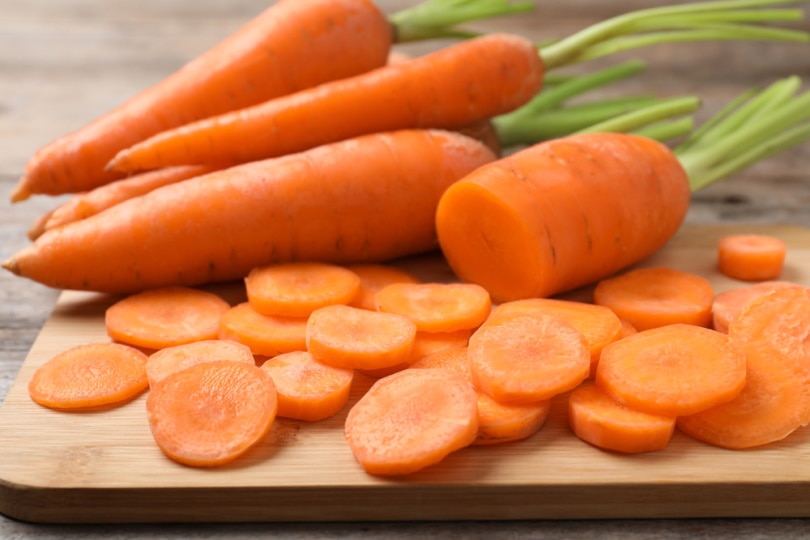
Common vegetables such as carrots, celery, and green beans are all safe for dogs to eat. Carrots are an excellent source of vitamin A, and they can be cooked or served raw as a snack. Celery is a super low-calorie vegetable with a crunchy texture that dogs often enjoy—perhaps they love the crunchiness alone. Green beans are a great source of fiber and are also a low-calorie snack.
Other vegetables that are safe for dogs include sweet potatoes, broccoli, and spinach. Sweet potatoes are a great source of vitamins and minerals. Broccoli is high in vitamins A and C. Spinach is also an excellent source of vitamins, and beta carotene and also contains iron. All of these veggies can be cooked or served raw.

Veggies That May Be Harmful to Your Dog
While many vegetables are healthy for your pup, there are some that should be avoided. Protect your pooch by learning the vegetables that should be kept out of Fido’s diet. Let’s look at some vegetables to avoid giving your dog.
Garlic
Garlic is one of the most toxic vegetables for dogs. It contains a compound called thiosulfate, which can lead to anemia, diarrhea, vomiting, and abdominal pain in dogs. You may be surprised to know that even a small amount of garlic can cause serious health problems for your pup, so it is best to keep it out of its diet.
Onions
Onions are another one to avoid. Like garlic, onions are in the allium family, and also contain thiosulfate, which can cause anemia in dogs. Onions can also cause digestive issues like nausea, intestinal inflammation, and vomiting.
If your dog eats a large amount of onions, it can lead to liver damage and even death in some cases. Chives and leeks also belong to the allium family of vegetables, so keep your dog away from these also.
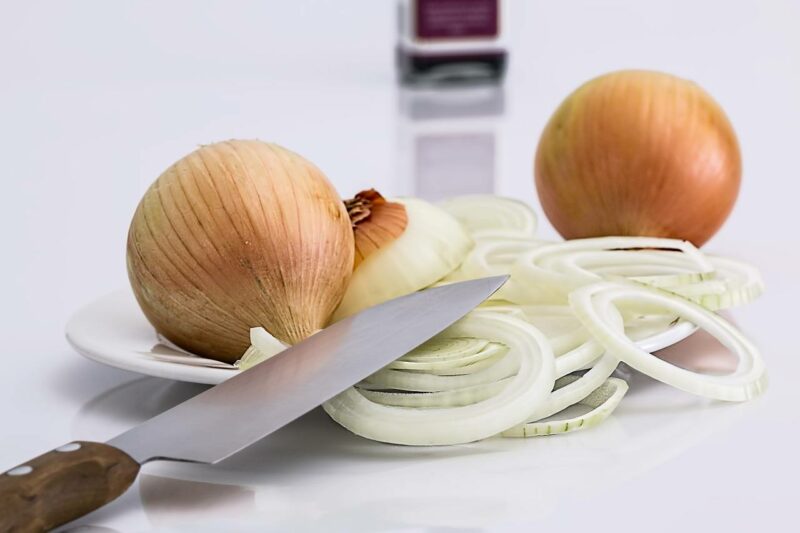
Mushrooms
While some mushrooms are safe for dogs to eat, as with us humans there are many types that should be avoided (specifically the wild ones including Amanita phalloides, Amanita pantherina, and Galerina) as they can be deadly due to their toxins. You may also find that your dog experiences gas, nausea, or other digestive irritation after consuming mushrooms.
If this is the case, refrain from feeding them to your pup in the future. If introducing mushrooms to your dog’s diet, make sure they are shop-bought ones and do so in small quantities.

Final Thoughts
So yes, rutabagas are safe for dogs to eat in moderation. These root vegetables are a nutritious source of fiber, vitamins, and minerals, and they can provide your pup with many health benefits. However, there are some precautions to take when feeding rutabagas to your pup, such as making sure they are cooked and only feeding them in small amounts.
And remember, as a pet parent, it’s important to do your research before introducing any new foods to your pup’s diet. If you have any questions or concerns about feeding rutabagas to your pup, it may be helpful to check with your vet before making any significant changes/additions.
See also:
